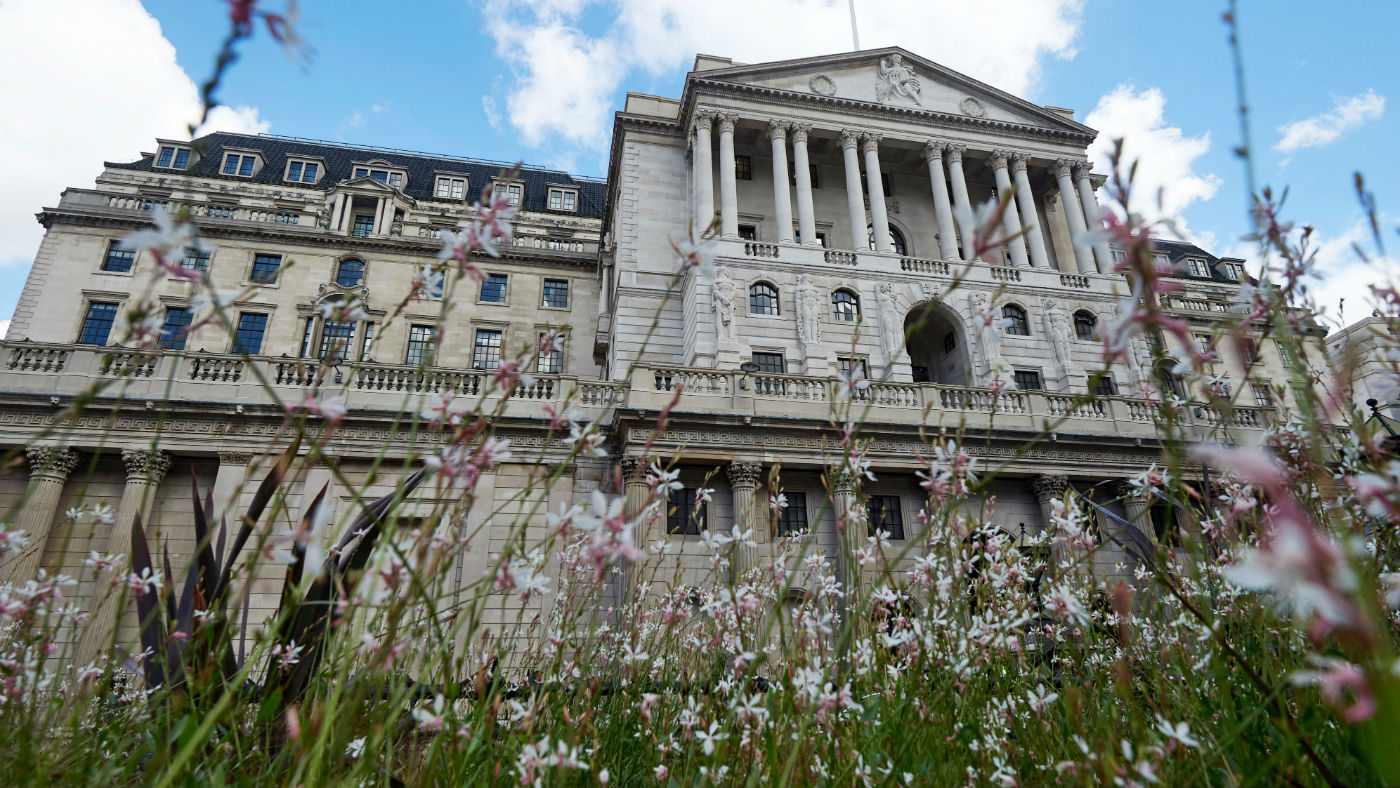Interest rates ‘likely to rise in May’ despite Brexit
Most economists polled by Reuters still expect summer rate rise but don’t see follow up for another year

A free daily email with the biggest news stories of the day – and the best features from TheWeek.com
You are now subscribed
Your newsletter sign-up was successful
A majority of economists still expect UK interest rates to rise in May even though Brexit is making the future hard to predict.
Last month, the Bank of England’s rate-setting monetary policy committee (MPC) voted unanimously to leave rates at 0.5%, but “the tone of its discussion suggests the cost of borrowing will not remain this low for much longer”, says The Guardian.
The Bank is intent on bringing the UK’s 3% inflation rate down below its target of 2%, and is expected to increase the base rate to 0.75% by the summer.
The Week
Escape your echo chamber. Get the facts behind the news, plus analysis from multiple perspectives.

Sign up for The Week's Free Newsletters
From our morning news briefing to a weekly Good News Newsletter, get the best of The Week delivered directly to your inbox.
From our morning news briefing to a weekly Good News Newsletter, get the best of The Week delivered directly to your inbox.
Following last month’s meeting, MPC member Gertjan Vlieghe said a pick-up in wages and an increase in household debt meant the economy was “ready for somewhat higher interest rates”.
The Bank said in February it would need to raise rates to tackle stubbornly high inflation “somewhat earlier and by a somewhat greater extent” than it had anticipated towards the end of last year and its governor, Mark Carney, has hinted there will be at least two further rate rises over the next three years.
A majority of experts polled by Reuters still think a summer rate rise is likely after the hawkish signals from Bank of England policy makers, “but most don’t see a follow-up move for another year”, says the news agency.
“Part of the hesitation,” says Reuters, “stems from the fact that Britain’s economy has moved from leading to lagging all of its industrialised peers, and is facing its most far-reaching change since the Second World War: leaving the European Union.”
A free daily email with the biggest news stories of the day – and the best features from TheWeek.com
All but one of those polled believed the UK will strike some sort of transition deal with the EU to soften the blow of Brexit.
But while the consensus is that London and Brussels will eventually agree a free trade deal, the second most likely outcome according to the experts is a no deal scenario, meaning Britain would trade with the EU on punishing World Trade Organisation rules.
-
 James Van Der Beek obituary: fresh-faced Dawson’s Creek star
James Van Der Beek obituary: fresh-faced Dawson’s Creek starIn The Spotlight Van Der Beek fronted one of the most successful teen dramas of the 90s – but his Dawson fame proved a double-edged sword
-
 Is Andrew’s arrest the end for the monarchy?
Is Andrew’s arrest the end for the monarchy?Today's Big Question The King has distanced the Royal Family from his disgraced brother but a ‘fit of revolutionary disgust’ could still wipe them out
-
 Quiz of The Week: 14 – 20 February
Quiz of The Week: 14 – 20 FebruaryQuiz Have you been paying attention to The Week’s news?
-
 The end for central bank independence?
The end for central bank independence?The Explainer Trump’s war on the US Federal Reserve comes at a moment of global weakening in central bank authority
-
 Will Trump’s 10% credit card rate limit actually help consumers?
Will Trump’s 10% credit card rate limit actually help consumers?Today's Big Question Banks say they would pull back on credit
-
 What will the US economy look like in 2026?
What will the US economy look like in 2026?Today’s Big Question Wall Street is bullish, but uncertain
-
 Is $140,000 the real poverty line?
Is $140,000 the real poverty line?Feature Financial hardship is wearing Americans down, and the break-even point for many families keeps rising
-
 Fast food is no longer affordable for low-income Americans
Fast food is no longer affordable for low-income AmericansThe explainer Cheap meals are getting farther out of reach
-
 Why has America’s economy gone K-shaped?
Why has America’s economy gone K-shaped?Today's Big Question The rich are doing well. Everybody else is scrimping.
-
 Should Labour break manifesto pledge and raise taxes?
Should Labour break manifesto pledge and raise taxes?Today's Big Question There are ‘powerful’ fiscal arguments for an income tax rise but it could mean ‘game over’ for the government
-
 From candy to costumes, inflation is spooking consumers on Halloween this year
From candy to costumes, inflation is spooking consumers on Halloween this yearIn the Spotlight Both candy and costumes have jumped significantly in price